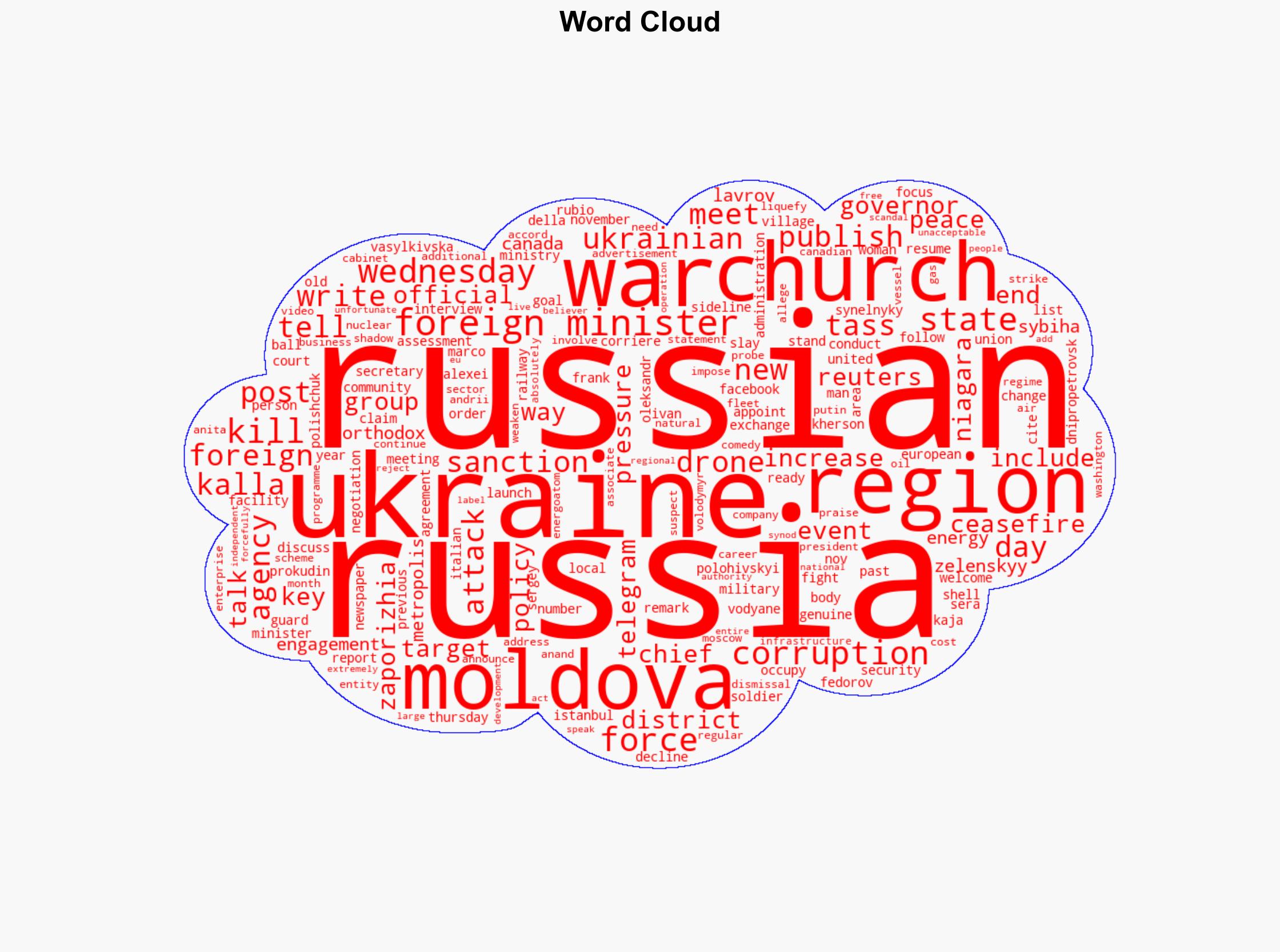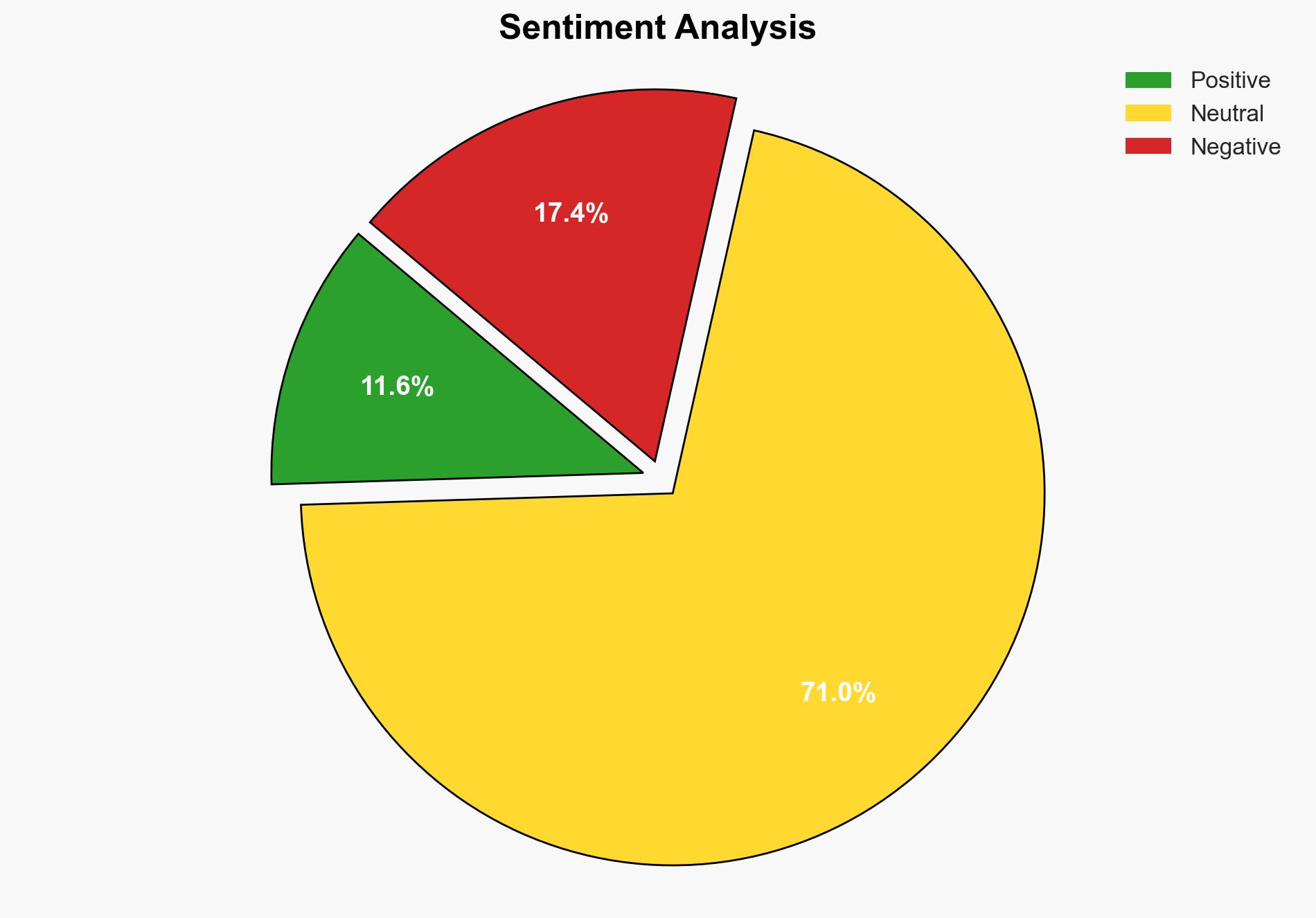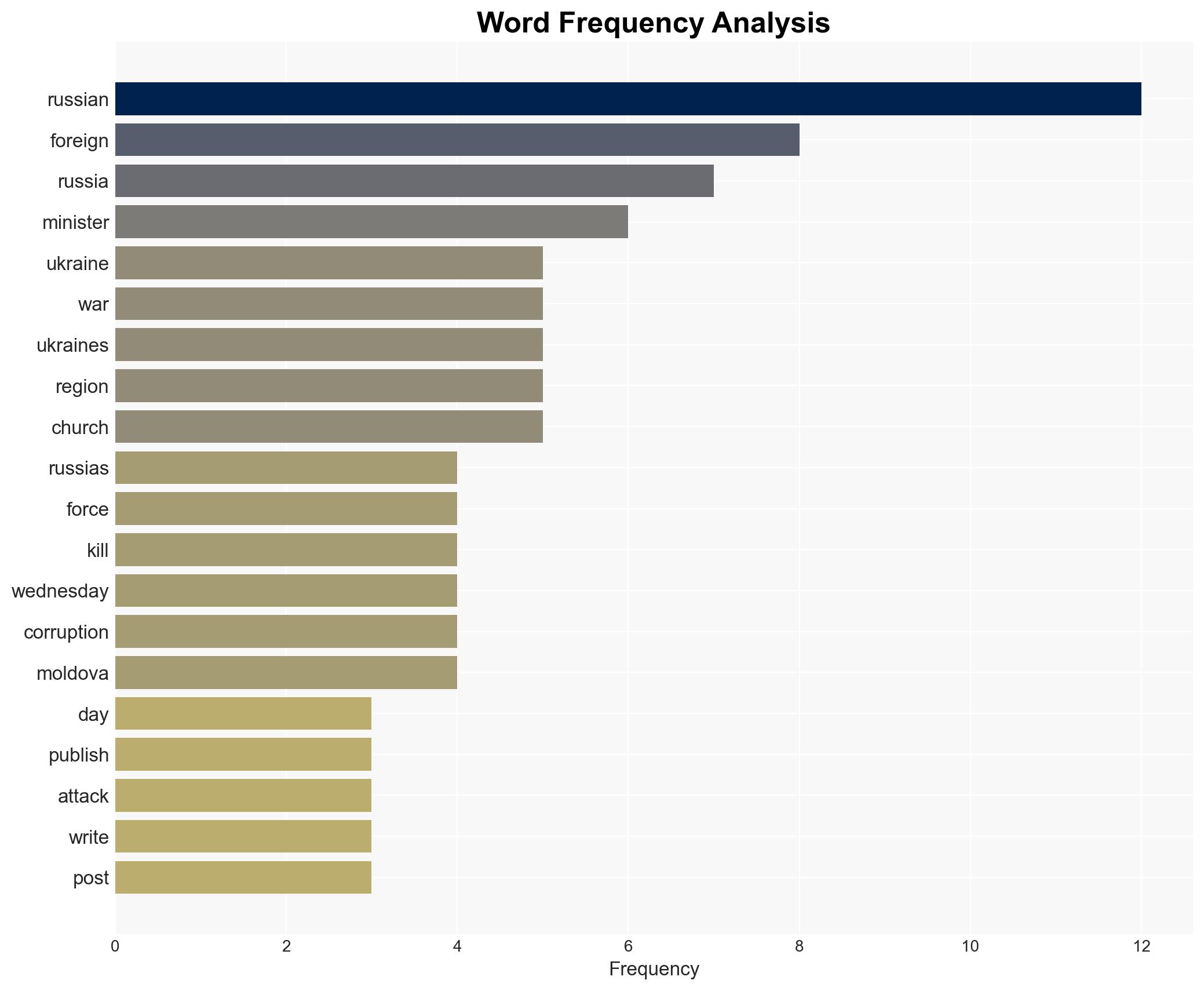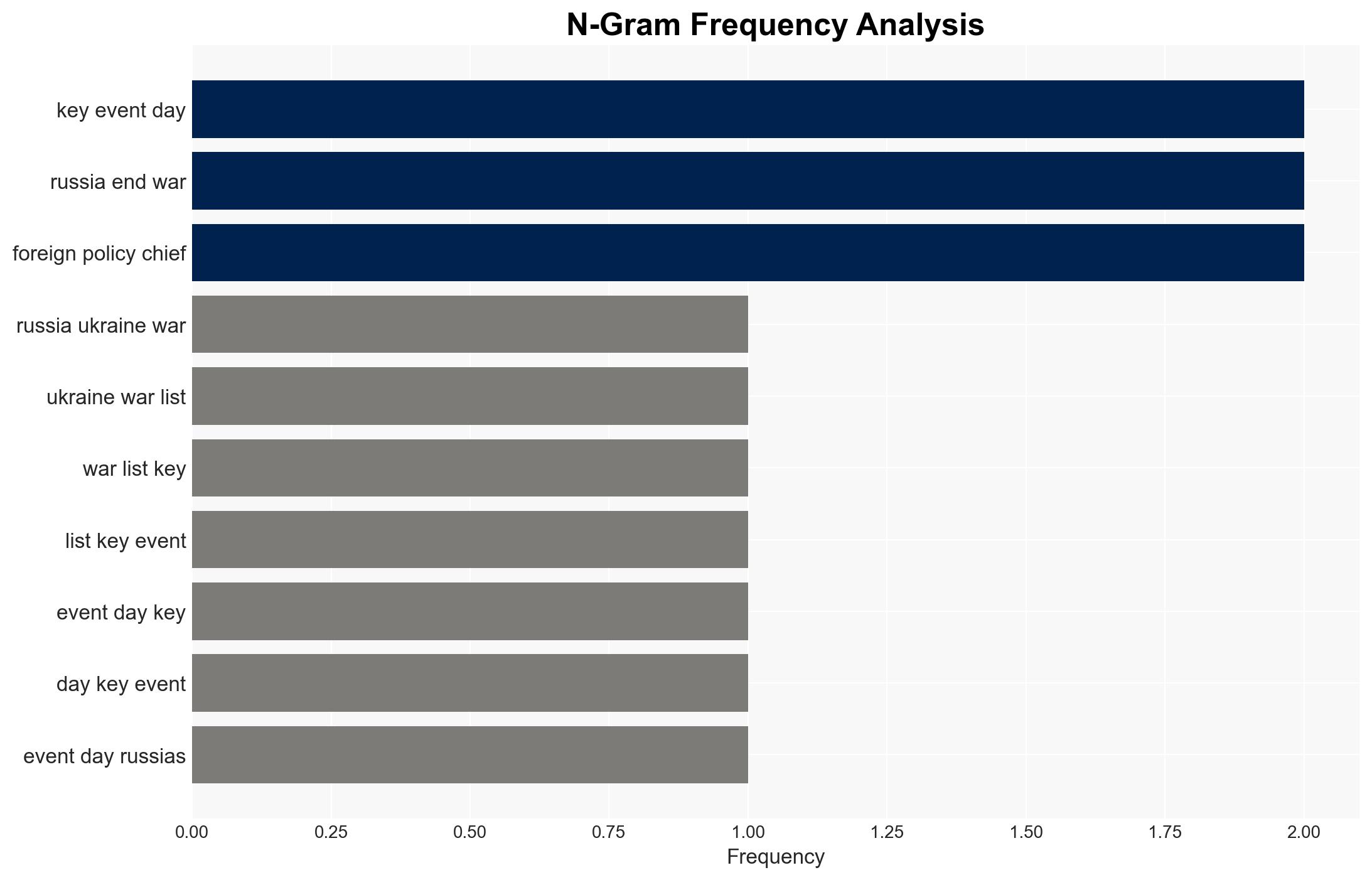Russia-Ukraine war List of key events day 1358 – Al Jazeera English
Published on: 2025-11-13
AI-powered OSINT brief from verified open sources. Automated NLP signal extraction with human verification. See our Methodology and Why WorldWideWatchers.
Intelligence Report: Russia-Ukraine war List of key events day 1358 – Al Jazeera English
1. BLUF (Bottom Line Up Front)
With a moderate confidence level, the most supported hypothesis is that Russia is intensifying its military operations in Ukraine while simultaneously engaging in diplomatic posturing to project openness to negotiations. This dual strategy aims to consolidate territorial gains and manage international pressure. Recommended actions include increasing diplomatic efforts to isolate Russia and enhancing support for Ukraine’s defense capabilities.
2. Competing Hypotheses
Hypothesis 1: Russia is escalating military operations in Ukraine to solidify territorial control before engaging in genuine peace negotiations. This is supported by increased attacks in the Zaporizhia, Kherson, and Dnipropetrovsk regions.
Hypothesis 2: Russia’s military actions are a diversion while it seeks to engage in diplomatic negotiations to relieve sanctions and international pressure. This is indicated by Russia’s expressed willingness to resume ceasefire negotiations and the involvement of foreign ministers in discussions.
Hypothesis 1 is more likely due to the continued intensity of military operations and historical patterns of Russia using negotiations as a strategic pause rather than a genuine effort to resolve the conflict.
3. Key Assumptions and Red Flags
Assumptions: It is assumed that Russia’s military actions are directly correlated with its strategic objectives in Ukraine. Additionally, the assumption is that international diplomatic engagements are genuine and not merely performative.
Red Flags: The lack of transparency in Russian diplomatic communications and the selective publication of interviews suggest potential deception. The dismissal of Ukrainian officials over corruption allegations could indicate internal instability or a strategic move to consolidate power.
4. Implications and Strategic Risks
The continuation of Russian military aggression poses significant risks of further escalation, potentially drawing in additional international actors. Economic sanctions and diplomatic isolation may increase Russia’s reliance on asymmetric warfare, including cyber and informational attacks. The internal political dynamics in Ukraine, exacerbated by corruption allegations, could weaken its defense posture.
5. Recommendations and Outlook
- Enhance diplomatic efforts to unify international pressure on Russia, focusing on isolating it economically and politically.
- Increase military and logistical support to Ukraine to bolster its defense capabilities.
- Monitor internal Ukrainian political developments to ensure stability and continued resistance against Russian aggression.
- Best-case scenario: Successful international diplomatic efforts lead to a ceasefire and genuine negotiations.
- Worst-case scenario: Escalation of conflict with broader regional involvement and increased civilian casualties.
- Most-likely scenario: Continued military engagement with intermittent diplomatic posturing by Russia.
6. Key Individuals and Entities
Ivan Fedorov, Oleksandr Prokudin, Kaja Kallas, Marco Rubio, Anita Anand, Andrii Sybiha, Volodymyr Zelenskyy, Sergey Lavrov, Alexei Polishchuk.
7. Thematic Tags
Regional Focus: Eastern Europe, Russia, Ukraine
Structured Analytic Techniques Applied
- Causal Layered Analysis (CLA): Analyze events across surface happenings, systems, worldviews, and myths.
- Cross-Impact Simulation: Model ripple effects across neighboring states, conflicts, or economic dependencies.
- Scenario Generation: Explore divergent futures under varying assumptions to identify plausible paths.
Explore more:
Regional Focus Briefs ·
Daily Summary ·
Methodology





